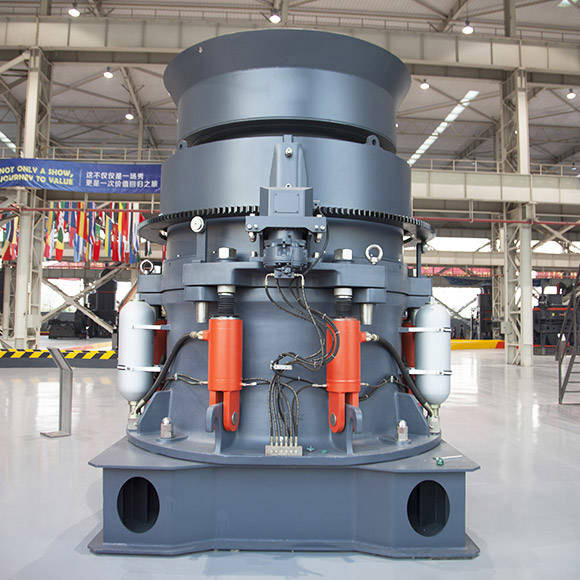Cone Crushers: An Overview
Cone crushers are pivotal equipment in the field of mineral processing, construction materials, and aggregate production. They are primarily used for secondary, and tertiary crushing stages in various industries. These crushers are highly efficient and are designed to crush rocks and ores of medium to high hardness, including iron ore, granite, limestone, and quartzite.
How Cone Crushers Work
A cone crusher operates on the principle of compression. It consists of a stationary, concave surface (the outer cone) and a movable mantle (the inner cone). The mantle gyrates within the concave, crushing the material that is fed into the top of the crusher. The crushed material then exits through the bottom of the machine.
The crusher’s design allows for continuous compression of materials as they move down the crushing chamber, becoming finer with each pass. The gap between the mantle and concave narrows as the material moves downward, ensuring a uniform size reduction. This continuous action allows for consistent output sizes and high production rates.

The unique design of cone crushers allows for continuous crushing operations. The gap between the mantle and the concave can be adjusted to change the size of the output material, providing flexibility in the final product size. This adjustability makes cone crushers versatile, as they can produce a range of material sizes depending on the requirements of the specific application.
Types of Cone Crushers
Cone crushers come in several types, each suited to different crushing applications:
Standard Cone Crushers: These crushers are designed for secondary crushing and are characterized by a steep angle between the mantle and the concave. They produce relatively coarse material, making them ideal for use in secondary crushing stages where larger product sizes are acceptable.
Hydraulic Cone Crushers: These advanced machines use multiple hydraulic cylinders to adjust the crusher’s settings and provide additional stability during operation. They offer enhanced crushing force, efficiency, and durability, making them suitable for handling tougher materials and larger production demands.
Advantages of Cone Crushers
Cone crushers offer several advantages over other types of crushers:
High Efficiency: The design of cone crushers ensures that they can crush materials efficiently, with minimal energy consumption. This efficiency is especially important in mining and aggregate industries, where energy costs can significantly impact profitability.
Consistent Product Size: Cone crushers produce material with a uniform size, which is essential for producing high-quality aggregates and for use in various industrial applications.
Adjustable Output: Cone crushers offer adjustable settings, allowing operators to control the size and shape of the final product. This flexibility is crucial in meeting the specific requirements of different applications.
Low Operational Costs: Cone crushers are designed to be durable and require minimal maintenance, which helps to keep operational costs low. The use of advanced materials and technology in modern cone crushers further enhances their longevity and reliability.
Safety Features: Modern cone crushers are equipped with advanced safety features that help prevent damage to the crusher and reduce the risk of accidents during operation. These features include hydraulic overload protection, automated control systems, and fail-safe mechanisms.
Applications
Cone crushers are widely used across various industries, including mining, construction, and recycling. In mining, they are used to crush ores and rocks into smaller sizes for further processing in mills or for direct use. In construction, they are employed to produce aggregates for road construction, concrete production, and other infrastructure projects. Additionally, cone crushers are used in recycling operations to process materials like concrete, asphalt, and demolition debris.

